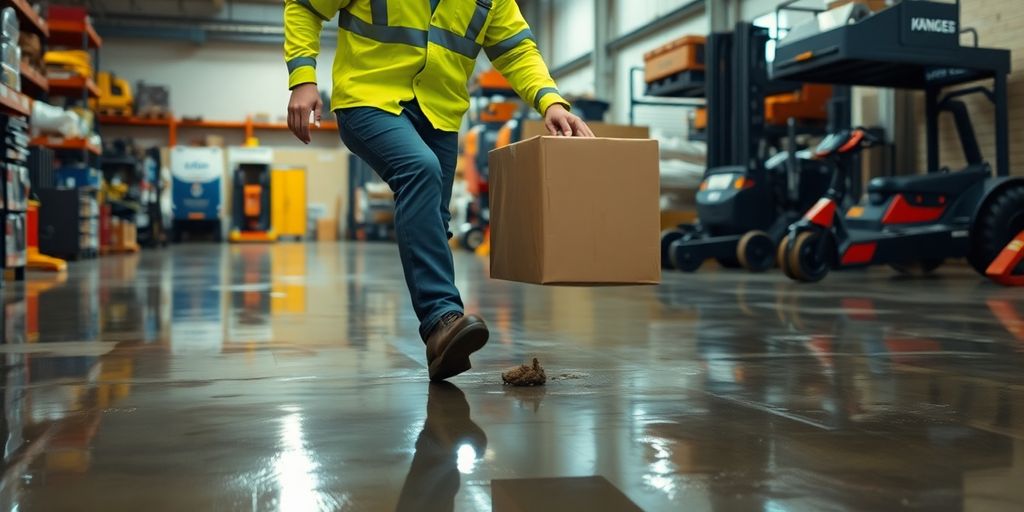A recent ruling by a federal judge in Pennsylvania has allowed a slip-and-fall lawsuit against Sunbelt Rentals to advance, raising critical questions about the company's responsibility for a delivery driver's injury. The case centers on whether the company could have anticipated the dangerous conditions that led to the plaintiff's fall.
Key Takeaways
- A federal judge denied Sunbelt Rentals' motion for summary judgment.
- The court found unresolved questions about the company's anticipation of the risk.
- The case will be decided by a jury, focusing on the expectations of delivery drivers.
Background of the Case
The lawsuit, filed by Randall Neyman and his wife, stems from an incident where Neyman sustained a severe ankle fracture while unloading a forklift from a trailer. Neyman contends that as part of his job, he was expected to assist in unloading the equipment, a claim supported by testimony from Sunbelt employees.
Court's Ruling
On December 13, U.S. District Judge William S. Stickman IV ruled against Sunbelt's request for summary judgment, indicating that a jury must determine whether Neyman was expected to navigate the slippery ramp and whether Sunbelt should have foreseen the potential for harm.
The judge noted that while Neyman acknowledged the ramp's muddy and wet conditions, the crux of the matter lies in whether Sunbelt could have anticipated the risk to drivers like Neyman, who might need to traverse the ramp despite its dangers.
Disputed Responsibilities
Sunbelt Rentals argued that Neyman acted independently and was not required to unload the trailer. They pointed to Neyman's own testimony, where he stated that he was not explicitly asked to unload the truck but typically did so on his own accord. The company maintained that it did not owe Neyman a duty of care, as the slippery conditions were both obvious and known to him.
Legal Considerations
The court's analysis referenced the Restatement (Second) of Torts Section 343A, which guides the determination of whether a property owner can be held liable for injuries resulting from known dangers. The judge emphasized the importance of assessing whether Sunbelt should have anticipated the risk of injury, regardless of Neyman's awareness of the ramp's condition.
Implications of the Ruling
This ruling underscores the complexities of liability in slip-and-fall cases, particularly in situations where the injured party is aware of the hazardous conditions. The court's decision to allow the case to proceed to a jury trial highlights the ongoing debate about the responsibilities of equipment rental companies in ensuring safe working environments for delivery drivers.
As the case moves forward, it will be crucial to examine the expectations placed on drivers and the extent to which companies like Sunbelt Rentals are accountable for injuries sustained in their facilities. The outcome could set a precedent for similar cases in the future, impacting how rental companies manage safety protocols and driver interactions.
The plaintiffs' attorney and Sunbelt's legal representative have not yet commented on the ruling, leaving the next steps in this legal battle uncertain as both sides prepare for the jury's evaluation of the facts.








